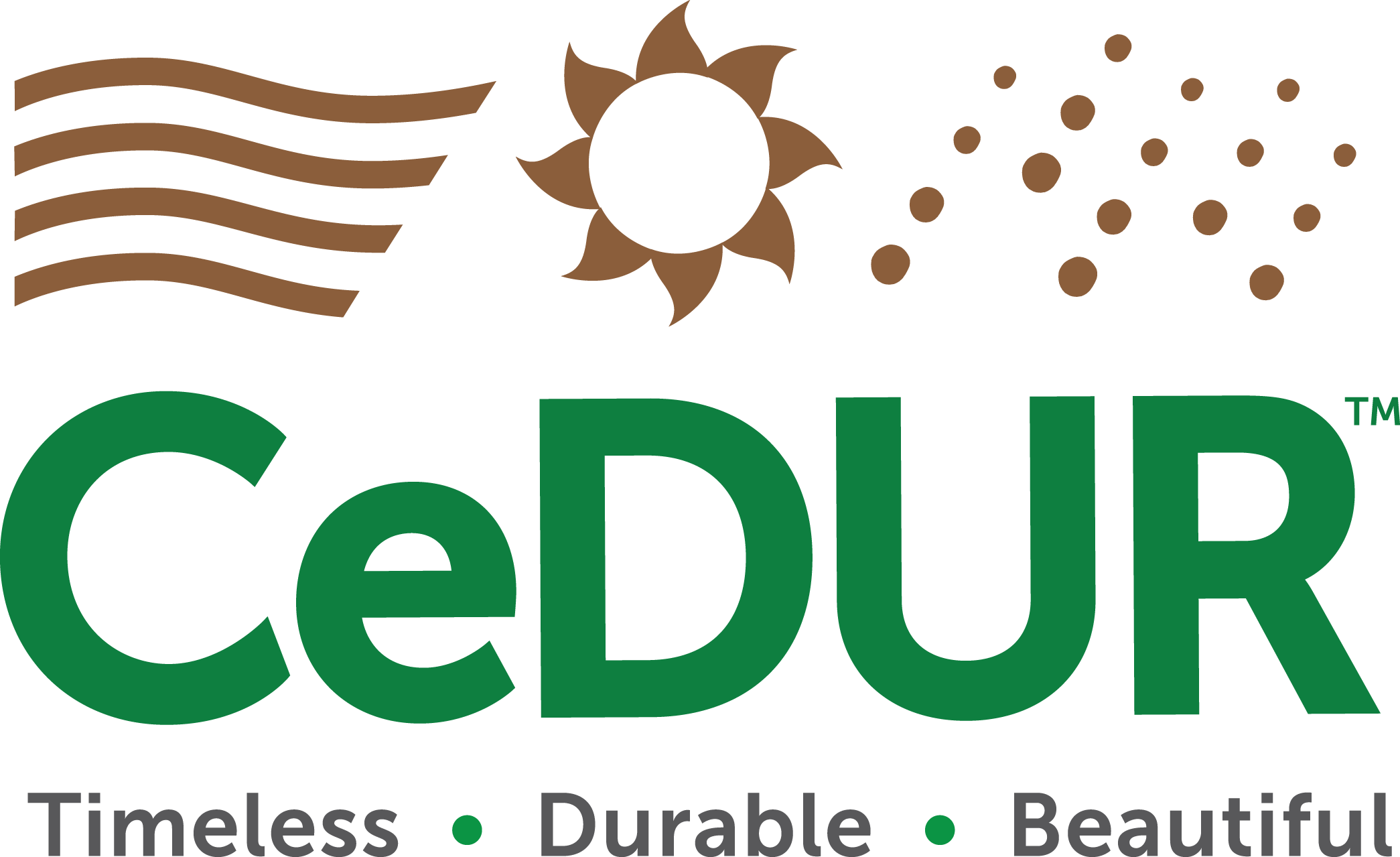FREQUENTLY ASKED QUESTIONS (FAQ’s)
Below are frequently asked questions about CeDUR Synthetic Roofing Shakes and roofing related questions.
What is the Class A Fire Rating? What is the best fire rating?
Fire ratings (UL 790 testing protocol) are granted at one of three levels: Class A, Class B, and Class C. Class A is the highest rating a product can receive.
The Class A Rating indicates the product has equaled the testing industry's most stringent fire resistance standard, a measure of how the roof will perform in severe fire conditions. CeDUR boasts a Class A Fire Rating without the need of a special fire resistant underlayment. When comparing fire resistance of synthetic roofing materials it is wise to understand that other synthetic composite or polymer based roofing products require a special fire resistant underlayment during the roof installation. CeDUR is the only product that does not require that special underlayment. To see CeDUR’s extreme fire resistance view our Class A burning brand fire test certification video:
Why are CeDUR Synthetic Shakes so resistant to fire?
Through our State of the Art Polyurethane manufacturing process we are able to engineer a product that provides high insulation value and is extremely resistant to fire. CeDUR shakes are a solid top to bottom and front to back and do not feature a cavity back underside. In addition, CeDUR is also composed of polyurethane where as most other synthetic or composite roofing products are composed of polyethylene.
Natural wood shakes ignite at 375 degrees Fahrenheit, the temperature on our Class A burn test reached a temperature in excess of 1,400 degrees Fahrenheit and CeDUR roofing shakes did not ignite. Through our patented manufacturing process CeDUR shakes achieve a Class A Fire Rating without the use of a special fire resistant underlayment. Discerning homeowners and industry professionals choose CeDUR because of our extreme fire resistance and stunning wood beauty.
What is the Underwriters Laboratories (UL) 2218 Impact Test and how do CeDUR shakes rate?
The Underwriters Laboratories, Inc. (UL) tests products and technologies for safety before they are marketed around the world. The UL 2218 Impact Test is the standard for impact resistance testing in the roofing industry. The test evaluates the effect of impact from a steel ball on a roofing test deck assembly.
There are four impact resistance ratings from Class 1 to Class 4, with Class 4 being the most impact resistant. In the Class 4 impact test, a 2 inch steel ball is dropped from a height of 20 feet on multiple surface points of a CeDUR Shake. CeDUR did not incur damage from the steel ball and passed the test with a Class 4 Impact Rating (highest rating achievable).
How does CeDUR perform in high wind areas?
CeDUR is certified to a wind speed of 115 miles per hour (3 second gust) with a mean roof height no greater than 40 feet. Above 115 mile per hour wind resistance, installations are considered high wind and CeDUR should be consulted for proper design. By decreasing the exposure we are able to withstand greater wind speed. CeDUR is warrantied for wind speeds up to 90 miles per hour. For more information contact the CeDUR Technical Team at (720) 974-9200.
How long have CeDUR shakes been on the market?
With installations dating back to 1998 CeDUR has been one of the leaders in the composite synthetic roofing product market. For over 20 years CeDUR has proven itself a reliable and dependable roofing material in one of nature's toughest testing grounds -the Western United States- where hail, wind, rain, fire, and snow conspire against all things man made.
Can CeDUR Shakes be installed in cold weather?
Yes, CeDUR can be installed in cold weather. However extra care should be taken when installations occur in temperatures below 40°F (4.4°C) and you should consult with CeDUR or a professional contractor if you are going to install CeDUR in temperatures below 40°F (4.4°C).
Can CeDUR be installed over existing roofing materials like asphalt or wood shakes?
No. CeDUR should not be installed over existing roofing materials. Improper installation will void the warranty.
How is the cut edge of a CeDUR shake sealed against moisture?
No sealant is required on cut surfaces and no repair is required if CeDUR is cut or chipped because our product is developed to prevent moisture intrusion with Closed Cell Technology and features color through pigmentation and no cavity back.
Do I need to worry about the structural capability of my roof framing when I re roof with CeDUR shakes?
CeDUR weighs only 170 pounds per roofing square. One roofing square, or square of roofing product, is the amount of material needed to cover 100 square feet of roof area. There should be no structural concerns at this weight. If you are working on a historical landmark or aged structure, it is best to consult with a CeDUR Team Member prior to installation.
What is the best way to find a Contractor to install CeDUR?
CeDUR has established a strong network of roofing contractors that represent the highest standard of excellence, quality, and knowledge in the residential roofing industry. If you need assistance choosing a quality local roofing contractor, click here to visit our Find a Contractor page.
